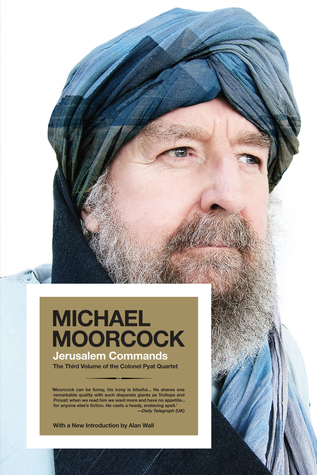What do you think?
Rate this book


496 pages, Paperback
First published January 1, 1992
“I am the voice and the conscience of civilised Europe. I am all that remains. But for me, and a few like me, Christendom and everything she stands for would today be no more than a forbidden memory!”
“I continue as best I can to lift high the Torch of Christian Civilisation against the Darkness of the Beast...I at least have my voice, my memory, our history; and I have survived to tell the truth of it.”
“I have always said that I was born without prejudice...I mean no harm to any individual of any race. I am a man of infinite tolerance and sensitivity to the feelings of others.”
“By stopping the spread of Hellenism through the Semitic world, the Jews paved a way for crueller, more primitive Islam.”

“I was everything that city [L. A.] most admired. I had looks, success, brains, imagination and my own starring part in feature films.”
“So many stimulants and narcotics were involved that I have only the haziest memories of soft flesh, of wild hair, of sweat, of jewellery and a confusion of discarded silk.”
“The mightiest city in Africa, Cairo smells of coffee, mint, sewage, camel-dung and raw saffron; of jasmine, patchouli and musk; of lilac and roses; of kerosene and motor oil. And she smells of the far desert and of the deep Nile. She smells of ancient bones.”
“The first is Esme, the innocent, wondering Esme, my sweet sister, my little girl; the second is Mrs Cornelius, whom I loved for her sanity and her deep relish for ordinary life; the third is Rosie von Bek.”
“[Mutual] love alone will save us, in the end – not ideologies, not even religion – but love, decent, honest, human love of one for another, all for one and one for all!”